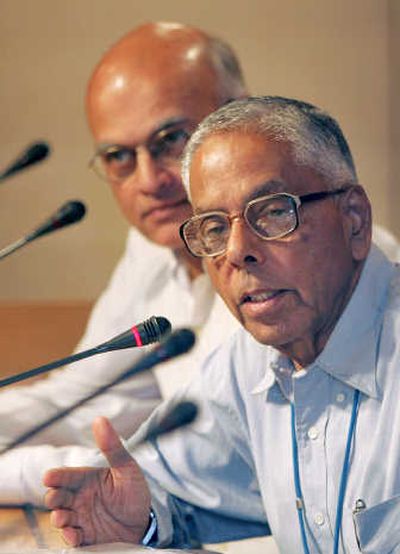U.S., India agree on nuclear deal

WASHINGTON – The Bush administration announced Friday that it had reached agreement with India on the terms of a controversial nuclear cooperation pact after India offered to permit international monitoring of a new fuel-reprocessing facility.
The agreement, which has been under negotiation for two years, would provide technical aid and fuel to India’s civilian nuclear power program for the first time since 1978, when the United States halted such assistance to protest India’s development of nuclear weapons.
The deal is opposed by many members of Congress who argue that it rewards a country that has refused to sign the Nuclear Nonproliferation Treaty. Administration officials counters India has not spread nuclear know-how even though it was not treaty-bound to contain it.
“We’ve made the argument that … India, in effect, outside the system, has played by the rules and that the system would be strengthened by bringing it in,” said Undersecretary of State Nicholas Burns.
He described India’s offer in June to put its planned reprocessing plant under International Atomic Energy Agency safeguards as a breakthrough in the negotiations.
The administration sees the agreement as part of an effort to improve U.S. relations with India, in part to counter the growing power of China. Officials also say that helping India develop its civilian nuclear energy capability will reduce greenhouse gas emissions from the rapidly developing country, the world’s second-most populous after China.
Substantial obstacles remain, however. India must hammer out an agreement with the IAEA over how the reprocessing facility is to be monitored. An international group of countries known as the Nuclear Suppliers Group must also approve the deal. Finally, it must be ratified by Congress.
In New Delhi, National Security Adviser M.K. Narayanan said India has “settled for what we think is more than adequate.”
The agreement apparently did not address another contentious point: India’s demand to be allowed to continue carrying out nuclear tests. “If there is a test, we will come to that later on,” Narayanan told reporters.
An Indian official, speaking on condition of anonymity, said Washington had assured India that if U.S. cooperation ended because of a test, the U.S. would help find another country to continue supplying fuel to India.